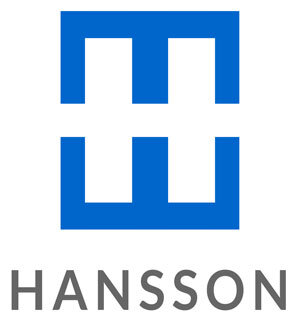Best Funds & Asset Management Lawyers in Oslo
Share your needs with us, get contacted by law firms.
Free. Takes 2 min.
List of the best lawyers in Oslo, Norway
About Funds & Asset Management Law in Oslo, Norway
Funds and asset management represent a critical component of Norway's robust financial sector, with Oslo being the country's primary financial hub. The legal landscape governing funds and asset management in Norway is closely aligned with European Union (EU) directives, as Norway is a member of the European Economic Area (EEA). This legal framework sets out rules and guidelines for the structuring, management, marketing, and supervision of investment funds including mutual funds, alternative investment funds, and private equity. In Oslo, law firms and financial advisors provide specialized legal services to institutional investors, fund managers, asset management companies, fintech startups, and private investors to ensure compliance and effective management of assets.
Why You May Need a Lawyer
The field of funds and asset management involves complex legal and regulatory matters that can be challenging for individuals and businesses to navigate. There are several common situations where seeking legal advice from a lawyer specializing in funds and asset management in Oslo can be essential, such as:
- Setting up or structuring an investment fund or management company
- Ensuring compliance with Norwegian and EEA regulatory requirements
- Drafting and reviewing fund documentation, including prospectuses and partnership agreements
- Dealing with cross-border fund distribution and marketing
- Managing investor relations and handling disputes
- Advising on tax implications and structuring investments efficiently
- Responding to investigations or requests from the Norwegian Financial Supervisory Authority (Finanstilsynet)
- Advising on mergers, acquisitions, or restructuring within the asset management sector
- Addressing questions about licensing and authorization for fund managers
Professional legal guidance can help prevent costly errors, ensure operational security, and provide peace of mind in a highly regulated environment.
Local Laws Overview
Norwegian funds and asset management law is characterized by rigorous regulation and supervision. The main legal instruments include the Securities Funds Act (Verdipapirfondloven) and the Alternative Investment Fund Managers Act (AIFM-loven), which implement the EU's UCITS and AIFMD directives, respectively. Key aspects include:
- Licensing and authorization of fund management companies and asset managers by the Financial Supervisory Authority of Norway (Finanstilsynet)
- Strict investor protection requirements, including transparency and reporting obligations
- Rules governing the marketing and sale of funds within Norway and across EEA countries
- Disclosure of fees, risks, and fund performance to investors
- Compliance with anti-money laundering regulations
- Requirements for internal controls, risk management, and safeguarding of client assets
Both fund managers and investors must be aware of these regulatory duties to ensure full compliance and avoid legal or financial penalties.
Frequently Asked Questions
What types of funds are regulated in Norway?
Norway regulates several fund types, including UCITS funds (mutual funds open to retail investors), alternative investment funds (such as hedge funds and private equity funds), and specialized investment structures. Each type has specific legal and regulatory requirements.
Who supervises funds and asset managers in Oslo?
The Financial Supervisory Authority of Norway, known as Finanstilsynet, is the primary regulatory authority overseeing funds, fund managers, and asset management activities in Oslo and throughout Norway.
What are the main legal requirements for fund managers?
Fund managers must obtain authorization, comply with capital requirements, have adequate risk management and compliance routines, ensure transparency to investors, and follow strict reporting and record-keeping standards.
Can foreign fund managers market funds in Oslo?
Yes, foreign fund managers from EU or EEA countries can market their funds in Oslo under passporting arrangements, provided they notify and receive approval from Finanstilsynet. Non-EEA managers face additional authorization requirements.
What documents are required to set up a fund in Norway?
Typically, you will need a prospectus, articles of association, internal policies on risk and compliance, agreements with custodians and administrators, and applications for regulatory authorization.
Are there restrictions on advertising investment funds to the public?
Yes, marketing and advertising of funds are strictly regulated. There are rules concerning the content of marketing materials and requirements for pre-approval from regulators in some cases, particularly for retail investors.
What protections exist for investors in Norwegian funds?
Norwegian law mandates transparency, regular reporting, and fair treatment of investors. There are also requirements for asset segregation and independent custody of client assets to safeguard investor interests.
What are the tax implications of investing in Norwegian funds?
Norwegian funds may be subject to various taxation rules, including withholding tax, capital gains tax, and value added tax in certain cases. Both local and foreign investors should seek specific tax advice due to the complexity of these issues.
How are disputes between investors and fund managers resolved?
Disputes are typically addressed through internal complaint procedures or can be escalated to arbitration, the Norwegian Financial Complaints Board, or civil courts, depending on the nature of the issue.
What are the consequences of non-compliance with Norwegian fund laws?
Non-compliance can result in penalties, suspension or revocation of licenses, reputational damage, and even criminal liability in severe cases. Regular legal audits and compliance checks are essential.
Additional Resources
If you need further information or support regarding funds and asset management in Oslo, the following resources and organizations may be helpful:
- The Financial Supervisory Authority of Norway (Finanstilsynet): Regulates and supervises the financial sector including funds and asset management.
- The Norwegian Securities Dealers Association (Verdipapirforetakenes Forbund): A trade association for the securities and asset management industry.
- The Norwegian Association of Asset Managers: Provides resources and events related to asset management in Norway.
- Norwegian Tax Administration (Skatteetaten): For guidance on tax obligations and reporting requirements for funds and investors.
- The Norwegian Financial Complaints Board (Finansklagenemnda): An independent adjudication service for resolving disputes in the financial industry.
- Local Oslo law firms specializing in funds and asset management, many of which offer advisory services in English.
Next Steps
If you require legal assistance regarding funds and asset management in Oslo, consider taking the following steps:
- Identify your specific needs and objectives, such as starting a new fund, ensuring compliance, or resolving a dispute.
- Collect relevant documentation, including contracts, investment documents, and correspondence with regulatory authorities.
- Contact a reputable Oslo-based law firm or legal advisor specializing in funds and asset management law. Look for professionals experienced in both Norwegian and international matters if your issue involves cross-border elements.
- Prepare a clear list of questions and concerns to discuss during your legal consultation.
- Stay proactive regarding legal and compliance obligations, and schedule regular check-ins with your legal adviser to ensure ongoing compliance and operational efficiency.
Consulting with a specialist ensures that your investments and operations are protected and aligned with Norway's dynamic regulatory environment.
Lawzana helps you find the best lawyers and law firms in Oslo through a curated and pre-screened list of qualified legal professionals. Our platform offers rankings and detailed profiles of attorneys and law firms, allowing you to compare based on practice areas, including Funds & Asset Management, experience, and client feedback.
Each profile includes a description of the firm's areas of practice, client reviews, team members and partners, year of establishment, spoken languages, office locations, contact information, social media presence, and any published articles or resources. Most firms on our platform speak English and are experienced in both local and international legal matters.
Get a quote from top-rated law firms in Oslo, Norway — quickly, securely, and without unnecessary hassle.
Disclaimer:
The information provided on this page is for general informational purposes only and does not constitute legal advice. While we strive to ensure the accuracy and relevance of the content, legal information may change over time, and interpretations of the law can vary. You should always consult with a qualified legal professional for advice specific to your situation.
We disclaim all liability for actions taken or not taken based on the content of this page. If you believe any information is incorrect or outdated, please contact us, and we will review and update it where appropriate.

















